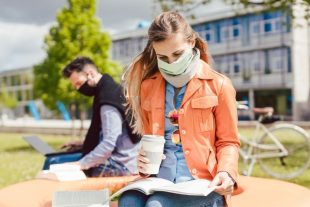National restrictions guidance for education settings

On Saturday the Prime Minister announced that, from today (5 Nov), the country will enter a new period of national restrictions until at least 2 December. Unlike the last national lockdown in the spring, this time schools, nurseries and other education settings will remain open to all pupils, not just vulnerable pupils and children of key workers.
From today, national restrictions are in force in England.
Click below for all you need to know.
https://t.co/shgzOurdZCpic.twitter.com/teu59b57Vd— UK Prime Minister (@10DowningStreet) November 5, 2020
The Prime Minister said:
My priority, our priority, remains keeping people in education – so childcare, early years settings, schools, colleges and universities will all remain open. Our senior clinicians still advise that school is the best place for children to be.
We cannot let this virus damage our children’s futures even more than it has already. I urge parents to continue taking their children to school, and I am extremely grateful to teachers across the country for their dedication in enabling schools to remain open.
We have published detailed guidance but here is a guide to what the announcement means for education settings:
New national restrictions will apply from Thursday 5 November. We’ve published additional guidance for schools which are remaining open: https://t.co/FprLvAQHotpic.twitter.com/AAFkTSNayy
— Department for Education (@educationgovuk) November 4, 2020
Schools and colleges:
- Schools remain open for all children and young people as they have since the start of the autumn term
- On 2 July we published guidance to support schools to welcome back all children from the start of the autumn term. Schools should continue to refer to this guidance. The measures set out in the guidance provide a framework for school leaders to put in place proportionate protective measures for pupils and staff. If schools follow the guidance and maximise control measures, they can be confident they are managing risk effectively
- Face coverings should be worn by students and staff in secondary schools and further education colleges in communal spaces, outside of classrooms, where social distancing cannot be maintained
- The guidance is clear that primary school children do not need to wear face coverings, and older children and young people with special educational needs or disabilities may be exempt from wearing them, depending on their need
- No one should be excluded from education for not having a face covering.
- Primary schools continue to have discretion to recommend staff and visitors wear face coverings in communal spaces where social distancing cannot be maintained, but this is not a requirement and it is for individual schools to make these decisions locally.
- Face coverings should also be worn by pupils in year 7 and above when travelling on dedicated school transport to secondary school or college
- Further Education settings will remain open. Face coverings should now be used outside of classrooms where social distancing is not possible
Face coverings should now be worn in communal areas outside of classrooms in all secondary schools and further education settings. For detailed information on the updated guidance, visit: https://t.co/FprLvAQHotpic.twitter.com/3xhartEzdu
— Department for Education (@educationgovuk) November 5, 2020
Nurseries, other early years settings and childcare:
- Nurseries, childminders and other forms of Ofsted registered early years provision are encouraged to stay open
- In early years settings, adults should now wear face coverings in communal areas where social distancing with other adults cannot be maintained. This does not apply to classrooms or areas where staff routinely interact with children
- Families are also able to form a childcare bubble with another household for the purposes of informal childcare, where the child is 13 or under, as part of a consistent childcare arrangement
Higher education:
- Universities and adult learning settings should consider moving appropriate provision online. Like everyone, students should remain in their current accommodation
- Students should only return home at the end of term for Christmas
From 5th November until 2 December, new national restrictions apply in England. For information on how this affects universities and students, visit: https://t.co/E2LQEoZ1UDpic.twitter.com/zu3fUSvrhe
— Department for Education (@educationgovuk) November 3, 2020











Responses